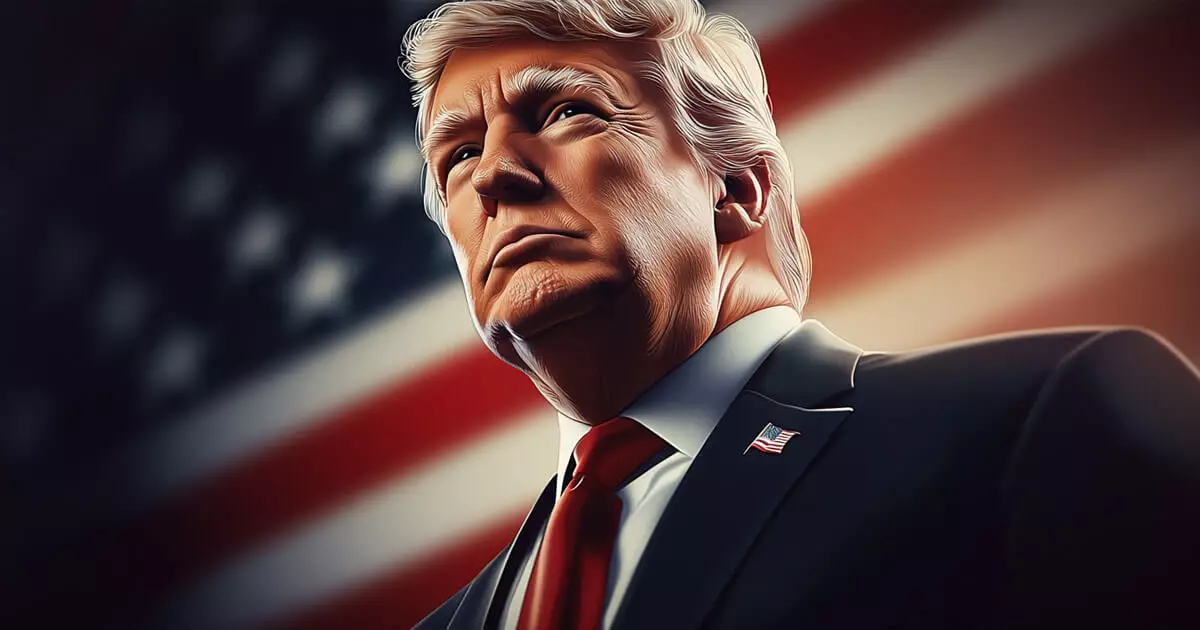The election of Donald Trump as President heralds significant changes in the regulatory landscape for cryptocurrencies. Promising to reform various government enforcement policies, Trump aims to lessen the stringent oversight that has characterized the cryptocurrency sector, particularly in relation to fraud cases. Current and former lawyers in government suggest that the regulatory focus will pivot away from cryptocurrencies, which have recently faced heightened scrutiny. This shift indicates a broader realignment of government priorities, moving towards pressing issues such as immigration enforcement, a pillar of Trump’s campaign.
One of the most notable consequences of this strategic pivot is the anticipated reduction in resources allocated to prosecuting cryptocurrency-related crimes. Scott Hartman, co-chief of the securities and commodities task force in Manhattan, has highlighted that the existing 16 prosecutors will likely operate with diminished capacity in handling crypto cases. This reduction could lead to a slower response to crypto fraud and abuse, suggesting that although these offenses will not be entirely overlooked, they may slide down the list of enforcement priorities.
The ramifications of this resource reallocation could be substantial. The cryptocurrency sector has been recovering from a tumultuous period, often referred to as the ‘crypto winter,’ which followed the collapse of significant market players. A softer enforcement stance could foster an environment where fraudulent activities might flourish, as the deterrent effect of stringent oversight diminishes.
Trump’s intentions also signal potential leadership shifts within regulatory bodies, especially concerning the U.S. Securities and Exchange Commission (SEC). By nominating Jay Clayton, a former SEC chair who exhibited a less aggressive approach towards crypto-related enforcement during his tenure, Trump signals an inclination to replicate this regulatory philosophy. Current SEC chair Gary Gensler, who has been criticized for his hardline stance on cryptocurrency management, may find his policies challenged if Clayton assumes this pivotal role.
Interestingly, while Gensler’s term will not end until 2025, the possibility of a leadership overhaul under a new administration remains a point of speculation. Should Clayton resume a leadership role, it raises questions about the future of ongoing litigation involving major crypto exchanges like Coinbase and Binance, which currently find themselves in a tense standoff with the SEC.
The potential for a major shift in cryptocurrency enforcement policy under Trump’s administration raises critical questions for stakeholders in the crypto space. With an impending focus on immigration and a softening of scrutiny toward crypto, market participants may need to recalibrate their compliance strategies accordingly. As enforcement priorities evolve, the balance between protecting investors and fostering innovation will be a critical challenge for regulators.
The implications of these policy changes may resonate across the cryptocurrency market, shaping its trajectory in unpredictable ways. By easing enforcement and possibly redirecting resources, Trump’s administration may alter the dynamic between regulators and the burgeoning industry, leading to a period of both uncertainty and opportunity within the crypto ecosystem. As the landscape evolves, engaged participants will need to remain vigilant and adaptable to navigate the uncharted waters ahead.















Leave a Reply